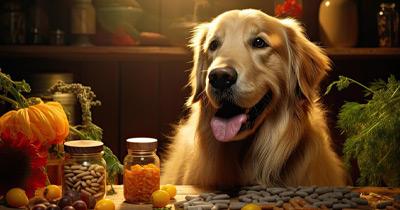Special Dietary Needs: Catering to Senior Pets, Puppies, and Pets with Health Conditions
 Like humans, pets have unique dietary requirements that evolve and vary based on age, health conditions, and individual needs. A healthy diet is crucial for their general health and well-being. In this blog, we’ll explore how to cater to the special dietary needs of seniors, puppies, and pets with health conditions, ensuring they receive the proper nourishment they deserve.
Like humans, pets have unique dietary requirements that evolve and vary based on age, health conditions, and individual needs. A healthy diet is crucial for their general health and well-being. In this blog, we’ll explore how to cater to the special dietary needs of seniors, puppies, and pets with health conditions, ensuring they receive the proper nourishment they deserve.
Understanding Special Dietary Needs
Senior Pets: As pets age, their nutritional needs change. Senior pets may require lower-calorie diets but higher in specific nutrients, such as protein, fiber, and joint-supporting supplements. Look for senior-specific pet foods to support their aging bodies and address common issues like arthritis or decreased mobility.
Puppies: Puppies have rapid growth and development during their early months, requiring a diet rich in protein, fats, vitamins, and minerals. Choose puppy-specific formulas that provide balanced nutrition to support their energy levels, muscle development, and immune system. Feeding them frequent, small meals is crucial to accommodate their fast metabolism.
Pets with Health Conditions: Pets with health conditions such as diabetes, kidney disease, food allergies, or gastrointestinal issues require specialized diets tailored to their needs. Speak with your veterinarian to find the ideal diet plan for your pet’s condition. They may recommend prescription diets or homemade recipes that address their unique dietary requirements while managing their health condition effectively.
Tips for Catering to Special Dietary Needs
Please consult with a Veterinarian: Before altering your pet’s diet, consult with a veterinarian to assess their needs and receive personalized dietary recommendations.
Read Labels Carefully: When selecting pet food, carefully read the labels to ensure they meet your pet’s dietary requirements. Look for high-quality ingredients and avoid fillers, artificial additives, and unnecessary preservatives.
Monitor Portion Sizes: By keeping an eye on portion sizes and making adjustments based on your pet’s age, activity level, and general health, you can help them maintain a healthy weight. Avoid overfeeding or underfeeding, as both can lead to health issues.
Provide Fresh Water: Ensure your pet can get fresh, clean water, especially if they’re on a special diet or medication that may increase their water intake needs.
Catering to the special dietary needs of seniors, puppies, and pets with health conditions is essential for their overall health and quality of life. By being aware of their specific nutritional needs and making educated dietary decisions, you can ensure they get the right nutrition they need to thrive. If you have any questions or concerns about your pet’s diet, don’t hesitate to consult the experts at Bloor-Kipling Animal Clinic for personalized guidance and support.
